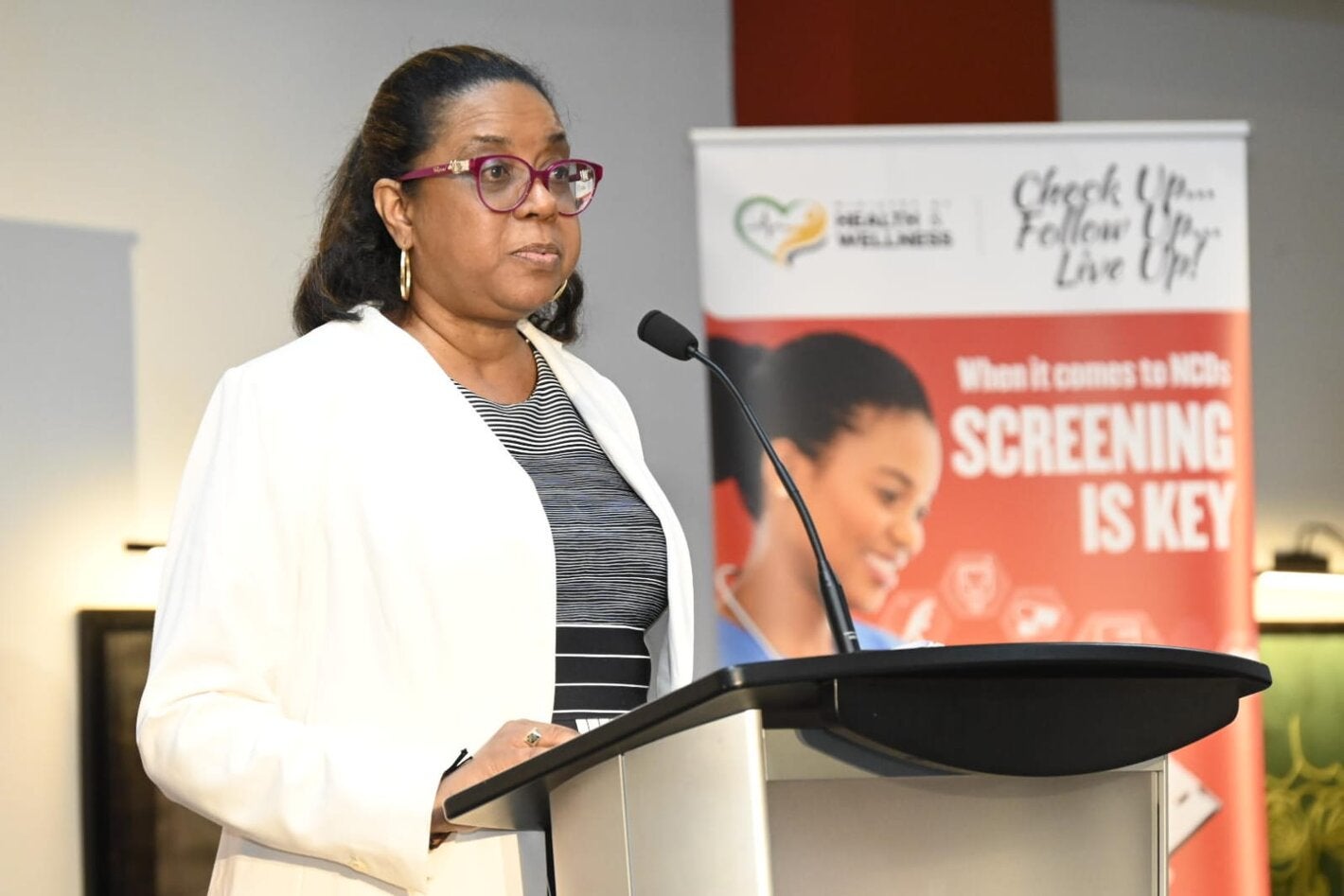
Kingston, Jamaica, July 7, 2023 (PAHO/WHO) – As Jamaica continues to grapple with the high prevalence of non-communicable diseases (NCDs) among the population, the Ministry of Health and Wellness, with the support of the Pan American Health Organization (PAHO), held the Annual NCD and Injury Prevention Review and Conference from June 27–29 at Ocean Eden Bay resort in Trelawny.
Held under the theme “Fast-tracking the Response: An NCD Imperative,” this year’s conference provided an opportunity for health professionals, policymakers, academics, and members of civil society to reflect on the progress made, identify challenges and discuss strategies to strengthen the fight against NCDs.
Recognizing that people living with NCDs offer invaluable insights in the prevention and management of NCDs, individuals affected by diabetes, hypertension, and breast cancer shared their personal stories, shedding light on the challenges faced from diagnosis to treatment and management and proposing strategies to close current gaps.
One of the highlights of the conference was the health regions’ reports and subsequent discussions on the success achieved and the challenges experienced by these regions. Notable achievements were observed in screening for common cancers and implementation of the Chronic Care Model and Jamaica Moves Reloaded.
During the conference, PAHO Advisor, Non-communicable Diseases and Mental Health, Dr. Patrice Lawrence-Williams, acknowledged Jamaica’s regional leadership in addressing NCDs through robust surveillance systems, multi-sectoral partnerships, and recent advancements in community-based mental health services aimed at understanding adolescents’ behavioural risk factors.
Dr. Lawrence-Williams emphasized that despite the gains made, there were still barriers to overcome, subsequently calling for the establishment of an equitable healthcare financing structure to address inequalities in the diagnosis, treatment, and diagnosis of NCDs.
An equitable healthcare financing structure is a key component of the Sustainable Development Goals (SDGs) and would provide access to better healthcare services for some 80% of the population who have to fund their healthcare from personal funds and are often times placed on long waiting lists to undergo diagnostic tests and surgical operations.
The annual review and conference highlighted the NCD crisis in Jamaica and echoed calls for multi-sectoral collaboration, improved healthcare services, enhanced screening modalities, and equitable healthcare financing to effectively address the burden of NCDs to achieve better health outcomes for the population.



